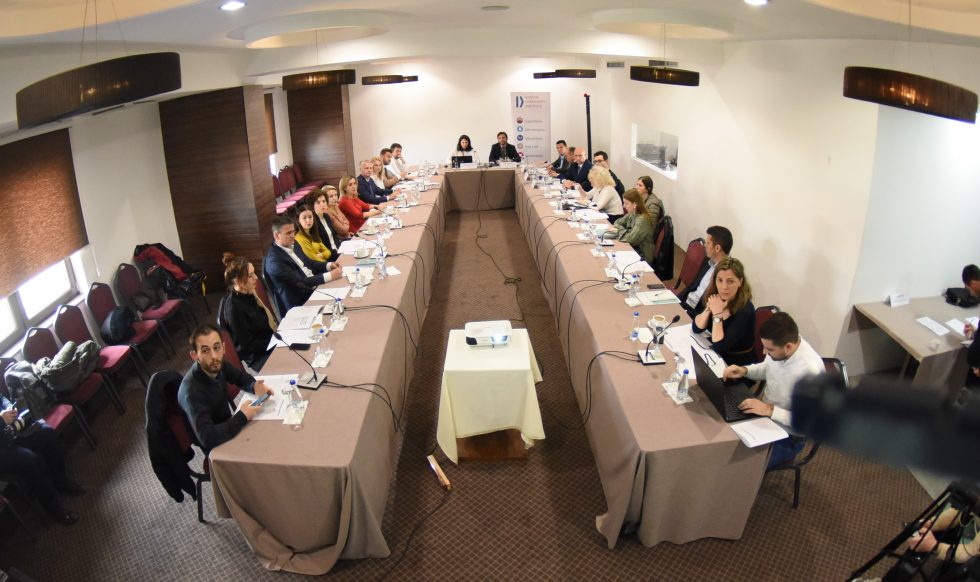


The KDI analysis published at today’s round table aimed to assess whether the previous government’s decision on capital investment “Dukagjini Highway” reflects the priorities and needs of the citizens and whether it is affordable for the state budget. KDI tends to shed light on this planning process and analyze how this project managed to deviate from the original projection for widening the existing road to the Highway project.
Elaborating the main findings, Fjolla Uka from KDI stated that the Government’s decision on the Dukagjini Highway project had not been preceded by a feasibility study and an analysis of the costs and benefits that would support the decision to re-design the project, from widening the existing road to a highway. Moreover, this investment was not foreseen in strategic documents such as the National Development Strategy and Government Plan 2017-2019. These documents only support the reconstruction of the existing Istog – Peja – Decan – Gjakova – Prizren road (R-107).
According to KDI, the implementation of this investment could adversely affect other priority areas foreseen by the NDS, such as education, health, the rule of law and employment. As an illustration, the real cost relative to the benefits planned on the Arben Xhaferi highway has shown that this investment has had a higher cost than the benefits. Even the construction of the Dukagjini Highway projected to cost over 1 billion euros could produce the same effects.
Ali Berisha, a member of the Kosovo Assembly from the AAK political party, has argued this government’s decision with the need to invest in the Dukagjini area, which has about 600,000 inhabitants, and with public consultations held in these municipalities. He estimated that the study is delayed, and that the return to the projection for enlargement is not sustainable. According to him, the infringement of this project is detrimental to the economic development of this area.
Betim Recica, Secretary at the Ministry of Infrastructure, supporting the construction of the Highway on the importance of linking the region to European corridors, stated that if this investment is divided into segments, there would be no lack of investment in other priority areas, and if it was well managed, it would not have a negative effect on public debt.
Hajrullah Çaku, an MP from the Kosovo Assembly from LVV, said there were efforts to create an anti-Dukagjin sentiment over the project, while stressing that mega-investments like this one, though needed, should be profitable. He also highlighted the environmental, social and cultural impacts that highway construction can bring.
Ferat Shala, member of the Kosovo Assembly from PDK, emphasized that the rate of return on investment from the highway is not only financial but also cultural and social. It linked its construction to tourism development in the Dukagjini area and increased road safety.
Rahovec Resident Council representative, Suad Çmega reiterated that MI had changed the initial highway variant in the third public discussion with which Rahovec residents disagreed, as the highway was too far. He also cited the collection of 10,000 signatures to oppose this variant that was not considered.
Most of the participants emphasized the need for depoliticization of the debate, while confirming that there was no feasibility plan for this project, which is necessary for strategic decision making regarding capital investments.
Download the full report here.
The round table was held in the framework of the project “Supporting civil society in enhancing public oversight and accountability in public institutions”, supported by the British Embassy in Pristina.